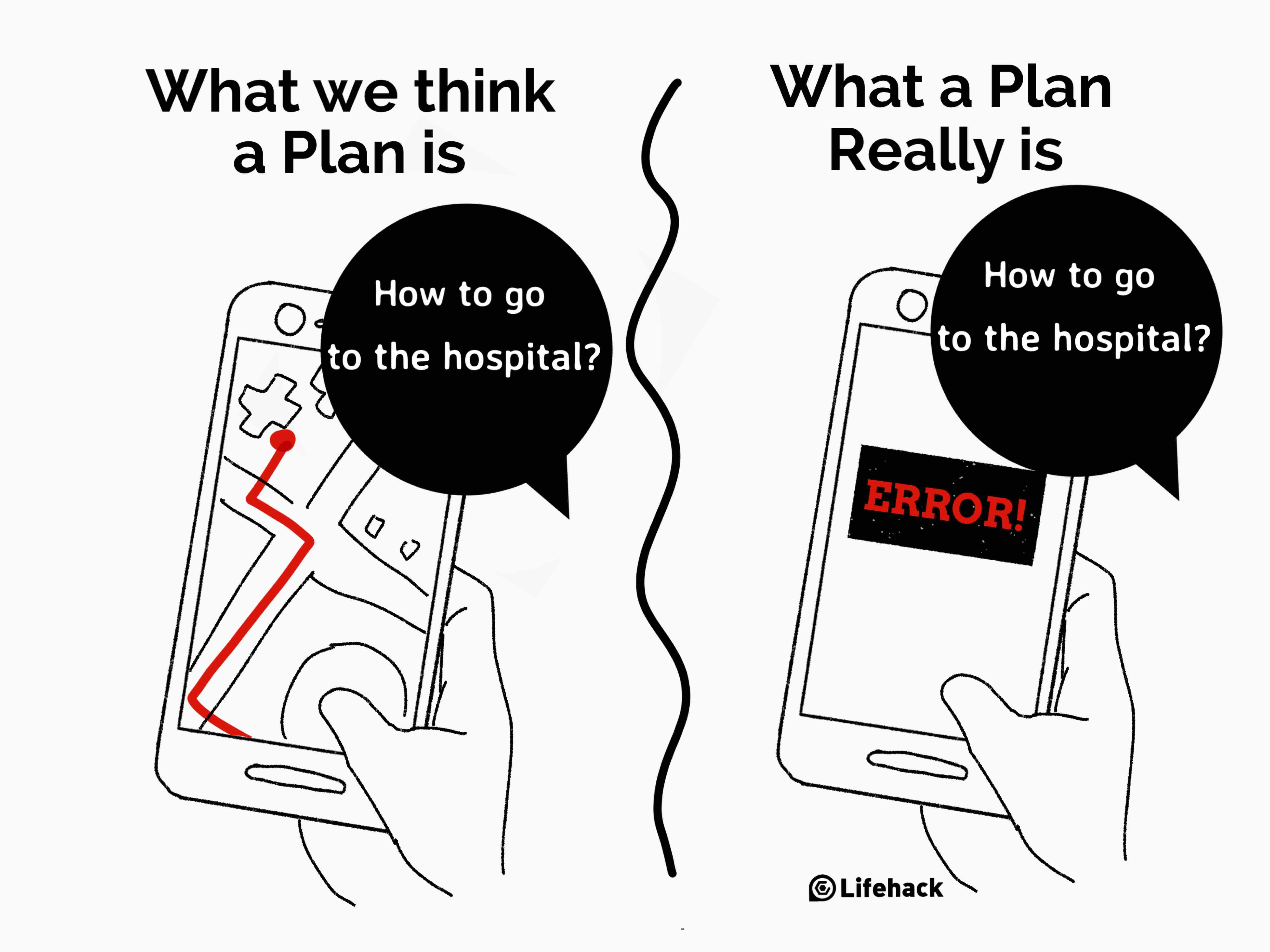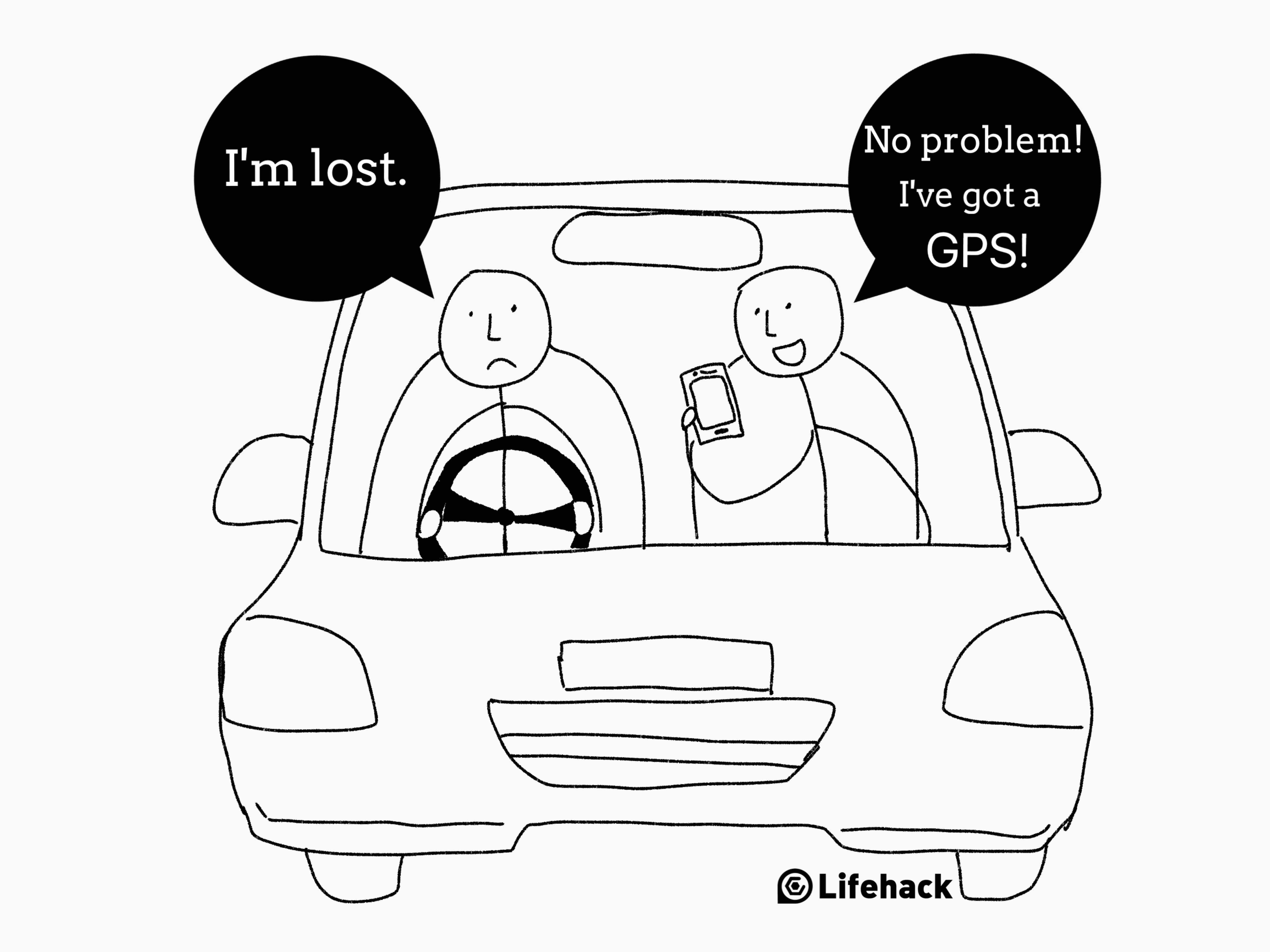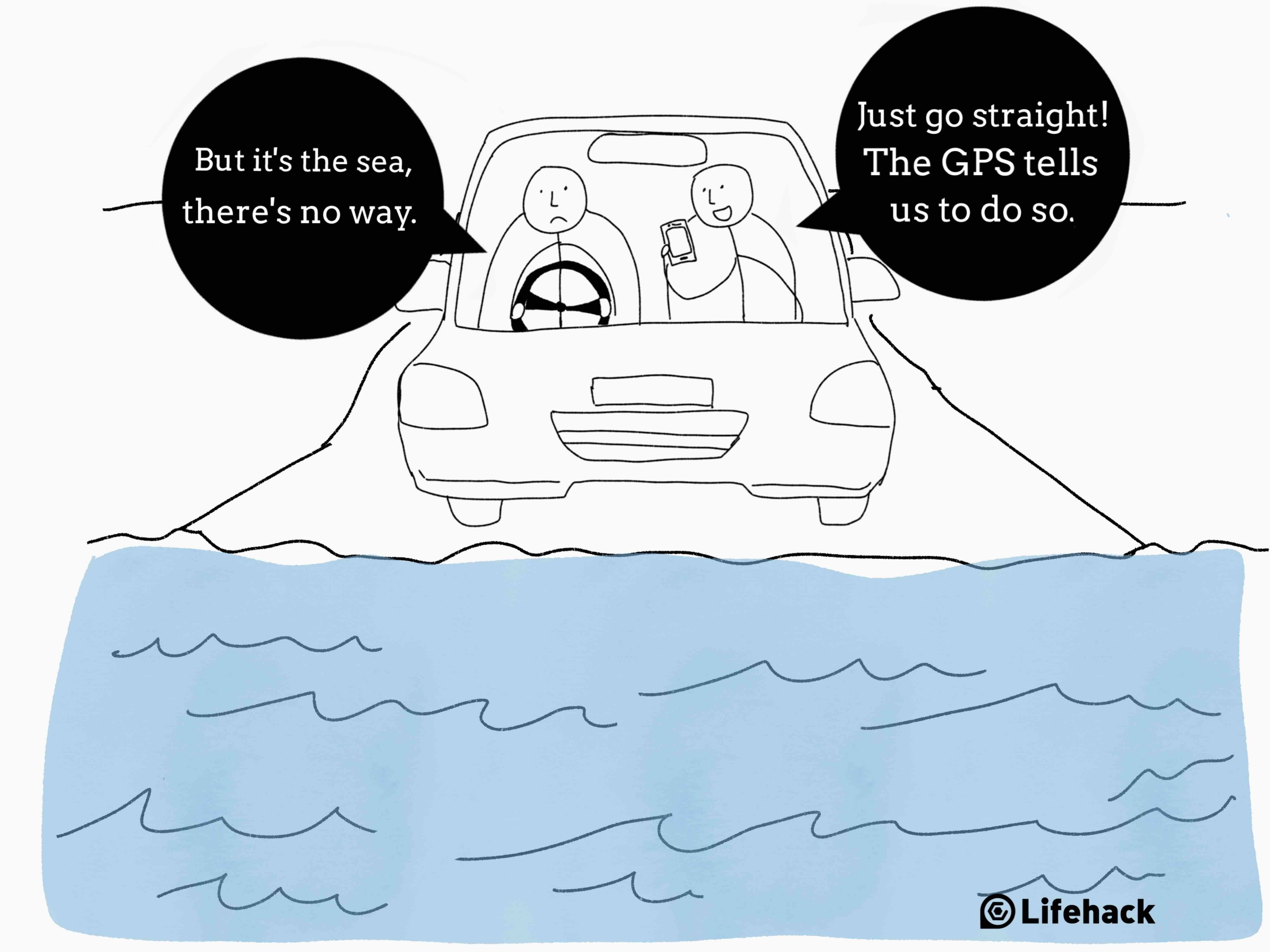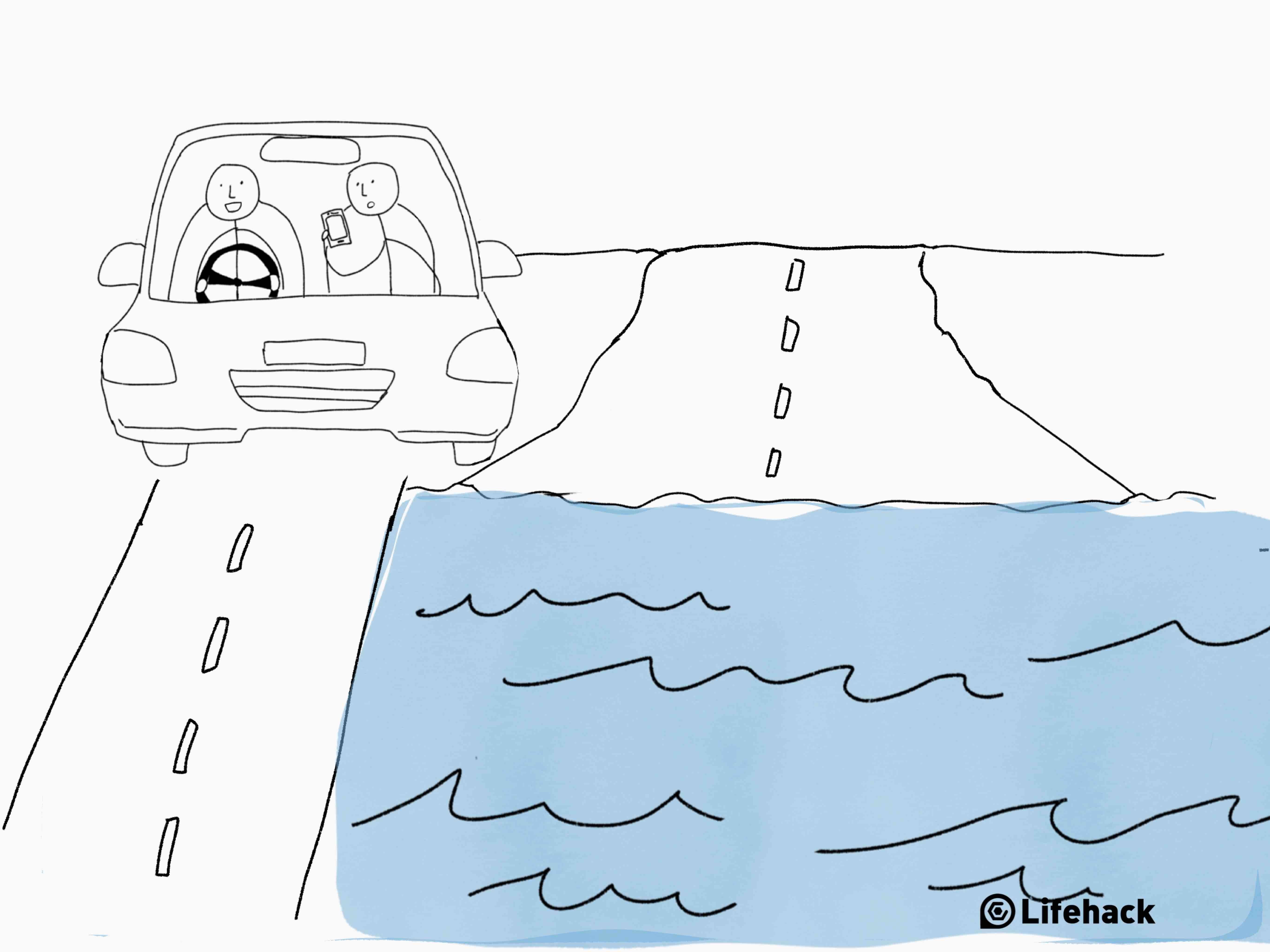What happens when you graduate from one school? Someone will want to know your plan moving forward. At work, on a new project, bosses often want to hear about the task plan. To many, the idea of planning is almost a superpower — it’s a concrete path to success. Without a plan, you can’t do anything. To an extent, this is true. But in reality, a plan is actually no more than guessing. It’s not that concrete. There’s no guarantee of success. Hundreds of plans concocted every day fail (if not millions). While planning does give you a glimpse of the future, how we think about it is misguided. We view it as a GPS that can guide you anywhere. In reality, it’s a GPS that sometimes fails to work or give you completely accurate directions.
Sticking to the Plan Can Be Bad
Plans reduce panic. This is a key point. All human beings have fear of uncertainty, even though uncertainty is essentially normative. When you have to do something you’re unsure of, your body reacts: sweaty palms and shortness of breath. Having a plan gives us more certainty and makes us panic less. Imagine driving in a new area. You’re nervous, and may be lost. Your friend has a GPS, though! That’s a plan. It is a direction. It will list the steps you need to reach where you’re going. Less panic.
Planning is good — but aiming to always stick to the plan is bad. As President Eisenhower said during his military days, Now think of the same situation in a car. If you’re driving from New York to Philadelphia, most people would go on Interstate 95 South. That’s the plan. But what if, on this day, there is an overturned truck in the middle of I-95? Now you need a new plan. You need to use surface roads or other routes. The plan has to change because of conditions.
A Plan Can Become an Illusion
To reduce uncertainties, we worry too much about covering all the bases. We then lack action around how things actually go.
There will always be a gap between the ideal world and reality — when we over-commit to the plan, it restricts the way we can solve the problem and neglects other possibilities. If the plan is bigger than you, you won’t be able to deviate from it and make the best decisions in an unexpected situation.
Think again about GPS. Some faulty GPS devices will literally tell you to drive on water. That’s currently impossible unless you have a Hovercraft. So if you follow the GPS above all, you might drive your car into the sea.
Planning is essentially guesswork
Don’t get obsessed with your plan. Blindly following a plan that has a limited relationship with reality will only make things worse. Think about jazz musicians. They perform with a plan, but also go with the flow. It’s very spontaneous and improvised by the end. It’s the same with comedy or other forms of performance art. A comedian begins his set with a plan of jokes, and the order of jokes, but you need to respond to the audience. Maybe you get heckled. Maybe one set of jokes isn’t working. You need to adjust the plan. Now back to that GPS example, what if your friend finds a bridge far away that can cross the water? Perfect. It wasn’t part of the original plan (which was a guess, honestly), but now you have a way to cross the water in your car.
Improvise Like a Jazz Musician
Planning isn’t the only way to success. Rather, a plan must be reviewed continually. Review the plan to see if it aligns with the challenges faced in reality. Don’t let a plan confine you from making decisions on what’s best for the situation. Follow the base in the plan, but improvise along the way when facing different situations. Especially in work contexts, we tend to think planning is the be-all and end-all. We have yearly plans, strategic plans, etc. But work conditions change all the time: employees leave, new bosses are promoted, the market you compete in shifts, etc. What then? The plan needs to change. It happens at the personal level all the time too. Don’t let the plan be everything. Be prepared to improvise. We’re all jazz musicians in a way. Featured photo credit: Freepik via freepik.com



